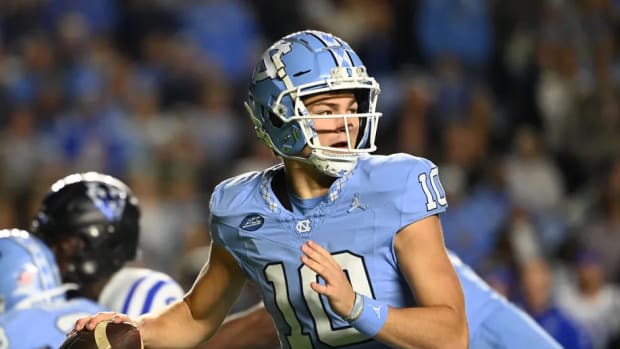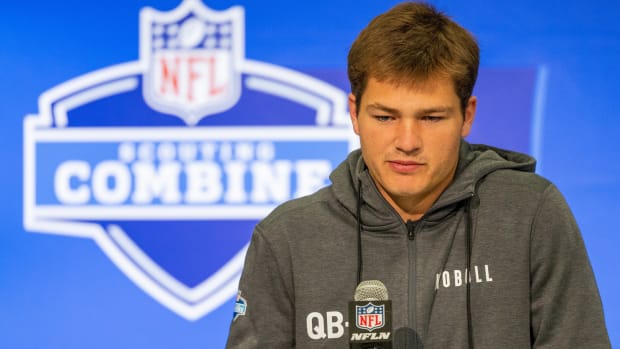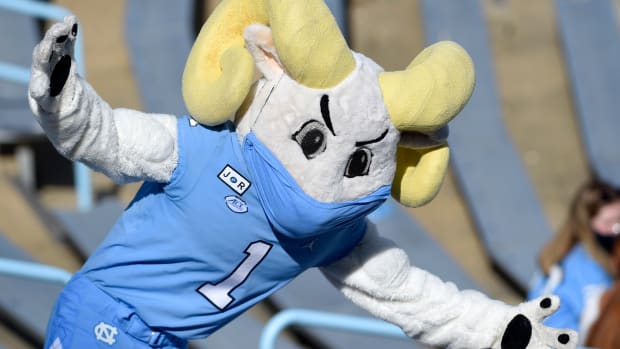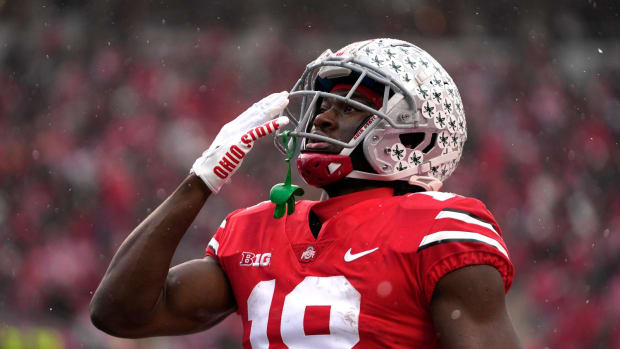Cleaning up penalties: Tar Heels improvement starts with a spotless locker room
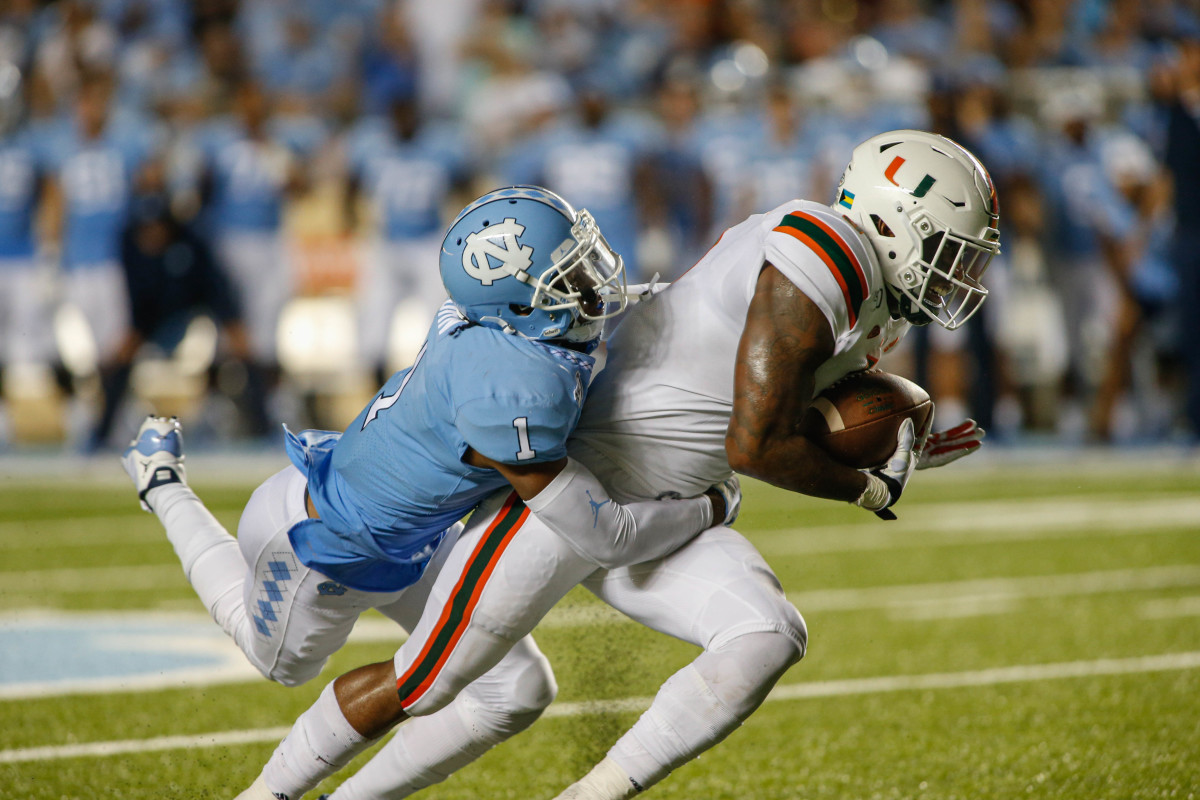
Before Mack Brown and the North Carolina coaching staff began to address the penalty problems that have plagued the program in recent years, they took aim at something that seemingly had nothing to do with holding linebacker or jumping offside.
“From day one, we said, ‘Clean up your locker room, clean up your table in the cafeteria after you get through, make sure that you’re on time to every meeting, make sure you’re in class every day…,’” Brown said.
In retrospect, those details had everything to do with penalty yardage as the little problems had been allowed to balloon into bigger problems for the Tar Heels over the past several seasons.
During Larry Fedora’s seven seasons in Chapel Hill, Carolina had an average ranking of 93.4 nationally in penalty yardage, surrendering 61 yards on seven penalties per game.
The sloppy play on the field was a reflection of what was going on in the facility.
“You used to be able to come into the locker room and you’d still see tape from the practice before laying on the ground,” senior tackle Charlie Heck said.
Now?
“The locker room is the cleanest it’s ever been, that’s one thing that stands out,” Heck said. “Every day now, looks brand new; that’s the small attention to detail.”
The message was received, as the Tar Heels sit 13 nationally in penalty yardage through five games, giving up an average of 39.6 yards on 5.2 flags per game. In the win over Miami, Carolina had just one penalty for five yards, and last Saturday, three penalties — none on the defense — cost it 20 yards against Clemson.
Senior safety Myles Dorn admitted it’s tough to imagine this is the same team that never took consistent strides to improve penalties in recent seasons.
“Based off the past few years, not at all,” he said. “I kind of knew that was the difference between last year’s team and this year’s team, just discipline and focusing on the little things.”
A culture of accountability has developed in the locker room, where if anyone thinks about leaving a mess like the old days, they’ll hear about it — and not just from the experienced leaders.
“Everybody polices everybody, so if you’re beside somebody that leaves their trash, (they’re) going to get it,” Dorn said. “Making sure the locker room is clean, people picking up trash even if it’s not theirs; it correlates to the field. You’re going to take more pride in what you do.”
On the field, Brown and the staff have emphasized penalties, with officials at every practice with instructions to call things even tighter than they would in games.
That means players are focused on their technique and positioning to avoid hurting their side, and if the concern about hurting their unit isn’t enough, Brown calls out every penalty on the intercom and the yardage is marked off.

Mack Brown hasn't had many opportunities to argue with officials about penalties this season, and that's fine by him.
Jeremy Brevard - USA TODAY Sports
There’s no hiding from mistakes.
“We know exactly who gets the flag,” Dorn said. “He’ll tell everyone, ‘Flag,’ or whatever it is and you don’t want to be that person.”
Beyond being called out in front of the team, every penalty from every practice is charted and coaches see the trends, leading to conversations about correcting the issues. If that’s not working, playing time is the next consideration.
“We’re telling them, ‘You’d better be playing really, really good if you’re giving us a penalty, because if you’re going to cost us and you’re not playing well, you’re not going to play,’” Brown said. “Everything we’ve talked about is earning the right to play.”
The lesson is bigger than that.
No one wants to be the locker room slob or the guy who, for some reason, feels entitled to have the cafeteria staff cleaning up their mess — the same way they don’t want to be known for being selfish on the field.
“We’re so close as a unit, we don’t want to see our teammates looking at us like we’re the one that made the mistakes,” Dorn said. “When I was a younger player, I got told that the way you live off the field translates to the field. I never got that until now. I really think it makes a difference; the way you are as a person translates to the field.”



